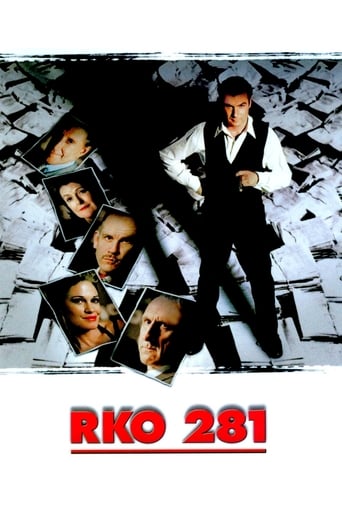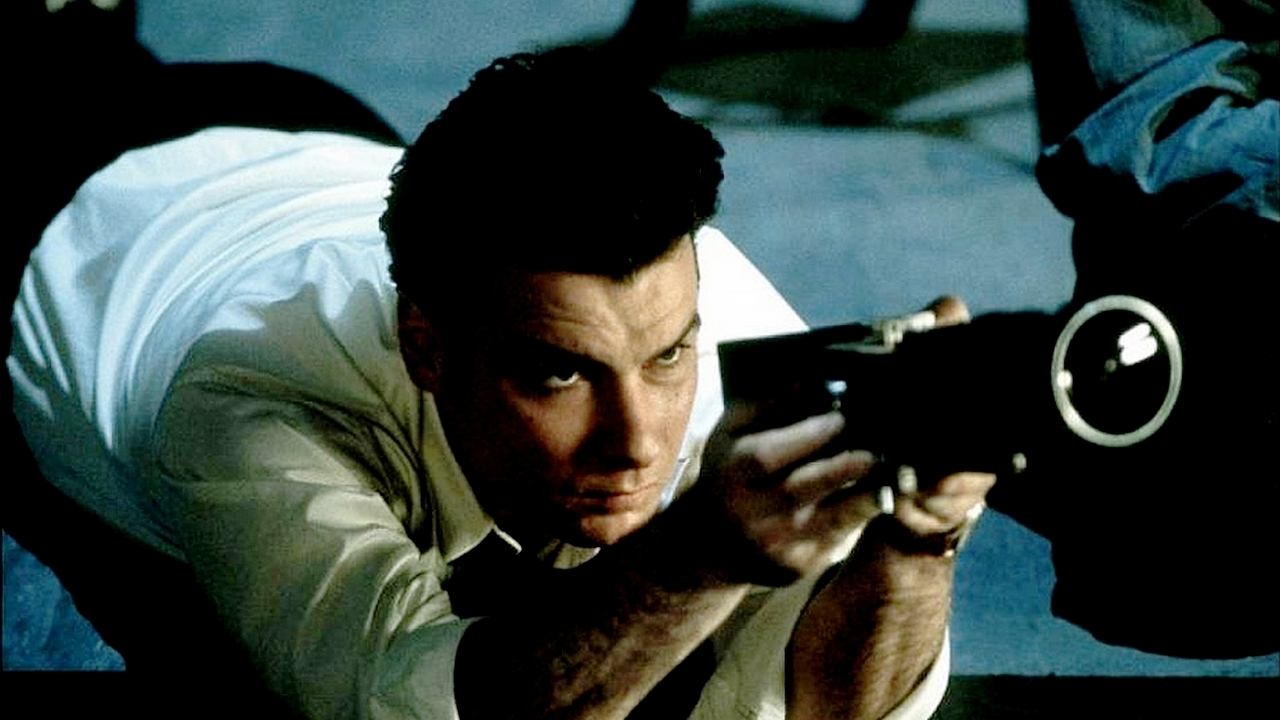esteban1747
Good to know part of the story of how "Citizen Kane (Hearst)" was made. In his first years as an actor/director Welles was a rebel, who did not want to follow what already was available in Hollywood. He wanted something new, critics to the society where he lived, films about how people behave, particularly those extremely wealthy. The films of Welles as an actor/director can be well compared to the novels written by Theodore Dreiser. His films were different and deep in their content and messages if compared with the existing previous ones. It is clear that making "Citizen Kane" was not an easy task for Welles and all of his collaborators. Obstacles were so many, and its final presentation was a real odyssey. This material does not show much details about how it was made, i.e. something about the main heroes, such as Jedediah Leland (Joseph Cotten), Kane's family and others. Liev Schreiber, who has no the paunch of Welles, was able to have a nice performance as the famous actor. Good acting of John Malkovich, as usual, but much more impressive was the acting of Roy Scheider as George Schaefer, the man providing funds for this achievement.
insomnia
Orson Welles was just twenty-six years of age when he made "Citizen Kane." A film regarded by many to be one of the best films ever made. As Welles quipped: "I started at the top and worked down." There is no doubt that Orson Welles was a genius (child prodigy), and that he never made a better film than "Citizen Kane." "RKO 281" (the original production number given to "Kane" by the studio), is the story of the trials and tribulations of making "Citizen Kane." By rights, a film about the making of "Citizen Kane", should pack more of a wallop than this one does. The subject has all the ingredients of high melodrama that's for sure; only this film doesn't quite live up to it. This is not necessarily the fault of the director: it's just that the topic is a far too complex one to be portrayed in a mere eighty three minutes. Still and all, "RKO 281" is not a bad little film about how one of the true geniuses of the cinema, who was treated so abysmally by the system that allowed him to make the film in the first place. Under pressure from William Randolph Hearst (whom "Kane" is a thinly disguised version), the heads of the other major studios devised a plan to ensure the film would never ever be seen again. Thankfully, George Schaeffer at RKO didn't go along with this idea. The film had its premier, but failed to engage cinema audiences, and effectively sank without a trace, no doubt helped by a total ban on advertising by the Hearst organization. Praise should go to Liev Schreiber as Welles, Roy Scheider as RKO boss, George Schaeffer, John Malcovich as Herman Mankiewicz, John Cromwell as Hearst and Melanie Griffith as Marion Davies. A special mention should also go to Brenda Blethyn as Hearst columnist Louella Parsons. In addition, Orson Welles second feature, "The Magnificent Ambersons", suffered the ignominy of having the editing of the film taken away from by RKO, who not only removed an hour of footage, but also shot a new, happier ending and tacked it onto the film. Although the extensive notes left by Welles on how the film was to be cut have survived, the excised scenes have not.
PAULA-MEEHAN
i really liked this movie, even the bits with Melanie Griffith's which is something. I appreciate that people who are familiar with wells work might be a little bit more critical of the piece but i thought it was super. Liev Screiber was outstanding in the lead because he chose to play Wells as a man as opposed to simply doing an impression of an already famous face. He made Wells sympathetic and compelling even though lets face it, as the movie presents it hes not really that likable a man. Id definitely recommend it to any Liev Schreiber fans. Hearst is also presented as an unlikeable character, but Cromwell plays him with great dignity that you almost feel sorry for him.
tostinati
Hate to say this, though I do, I think audiences have at last become too sophisticated for docudramas and film biographies of people who lived since the very late 19th and early 20th century, which we might term The Recorded Age. This is so very largely because a plethora of documentaries that are rich feasts of real visual source material and oral history appear every single day on cable TV. It is hard to watch anyone impersonating a figure who has been extensively recorded. I could buy Paul Muni as Louis Pasteur or Emile Zola. But I didn't buy Jim Carrey as Andy Kaufman or Will Smith as Muhammad Ali. The technical aspects of impersonation are too much in the fore front of my mind as I watch, because I know too intimately, almost second nature, what the subject's style and physical presence are like. This will more often than not prove to be the case. Who can impersonate Lucille Ball or Clark Gable or Orson Welles once you have been media-saturated by the real thing? Or put another way, in this age, when we learn every facial tic and pattern of breath of really big personalities, how could an impersonator HOPE to make the original subject of a docudrama or film bio come fully to life? Because of the omnipresence of modern media, I think they are doomed to fail.Where RKO 281 succeeds --dramatically, at least, if not in terms of history-- is in giving us portraits of people who, famous though they are, have not been over-recorded, and exist more as legend or enigmas, as part of an oral tradition, than as flesh and blood people. John Malkovich's Herman Mankiewicz works beautifully because we have seen a couple of photos of the man, and have heard a lot ABOUT him, without actually having heard the man himself. Malkovich gets behind this character to a rare degree. Perhaps he identified with this three times burned out alcoholic ghost in the Hollywood machine who can walk the razor's edge because he has nothing to look forward to, and nothing to lose. And James Cromwell's playing of Hearst feels like a revelation. His Hearst is not a voluble man. In fact, he is reticent, almost withdrawn. He takes care of business, but his personality is dry and interiorized in the extreme, and he is slow to rise to comment about anything. Whether these people were really this way is another question. But while the drama is on the screen, you buy it. These roles work. (Melanie Griffith's Marion Davies is a woman child/simpleton. I still don't know what to make of that interpretation.) Liev Schreiber is serviceable, as they used to say, as Orson Welles. But truthfully, his portrayal is more than 'okay' only if you are in an especially easy frame of mind coming to the film.Early in RKO 281 there is a mock newsreel of Welles' arrival in Hollywood of the sort that opened Citizen Kane. The contrast between the care used in recreating a newsreel in the original film, and the amateurish sloppiness of this one is telling. We are good at using computers to create fantasy worlds of mythic cartoon figures. You'd think we would be able to do unprecedented things --like dead-on copying the style of a 60 year old newsreel-- if we gave it even half a try. For whatever reason (budget?) this just doesn't seem to be the case. I have seen as convincing mock-ups of old broadcasts or news film in a throw-away sketch on Saturday Night Live. I overlooked Schreiber's bizarre failed period hair that screamed out FAKE! in this mock newsreel. But, as I say, only because I wanted to watch the film. I had to start cutting it some slack in the first couple of minutes. Bad sign.


 AD
AD



